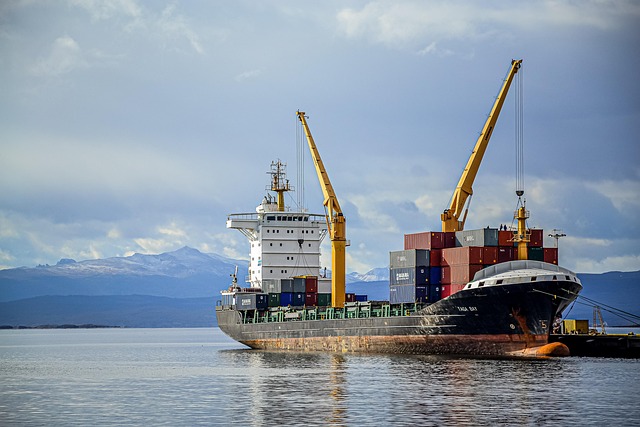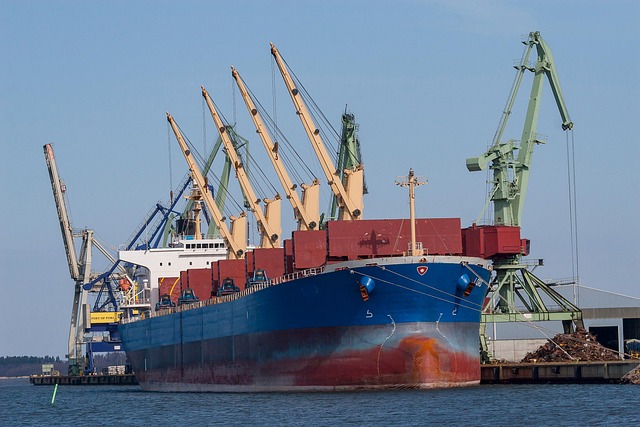Insulated containers are specialized transport solutions for pharmaceutical and medical supplies, featuring advanced temperature control, robust construction, and precise monitoring. Essential components include refrigeration units, digital temp monitoring, and customizable interiors. These containers enhance security, protect against environmental factors, and improve logistics efficiency. Reputable suppliers offer standard and custom options, catering to diverse business needs. Certification standards ensure safety and integrity during transit, particularly for vaccines, blood products, and pharmaceuticals. Effective packaging, labeling, and rigorous testing are best practices for maintaining product integrity, with considerations for dimensions, price, and potential modifications.
In the dynamic landscape of pharmaceutical and medical supply chain management, ensuring temperature control during transit is paramount. Insulated containers, certified for these specialized needs, play a pivotal role in preserving the integrity and efficacy of vital cargo. This article explores the essential features and benefits of these containers, delves into stringent certification standards, and offers best practices for their effective utilization, ultimately enhancing safety and efficiency in medical supply transportation.
- Understanding Insulated Containers: Key Features and Benefits for Pharmaceutical and Medical Supply Transport
- Certification Standards: Ensuring Compliance for Safe Medical Cargo Transportation
- Best Practices for Using Insulated Containers in Pharma and Medial Supply Chain Management
Understanding Insulated Containers: Key Features and Benefits for Pharmaceutical and Medical Supply Transport

Insulated containers are specialized transport solutions designed to maintain optimal temperatures for pharmaceutical and medical supplies, ensuring their integrity and safety during transit. These containers are more than just insulated; they feature advanced temperature control systems, robust construction, and precise monitoring capabilities. This combination ensures that vaccines, medications, and other time-sensitive materials remain effective and safe until they reach their destination.
Key features include state-of-the-art refrigeration units, digital temperature monitoring, and customizable interior designs to accommodate various product requirements. Benefits extend beyond temperature regulation; insulated containers offer enhanced security, protection against environmental factors like humidity and shock, and increased efficiency in logistics management. For businesses dealing with perishable or sensitive medical supplies, buying, renting, or leasing insulated containers from reputable suppliers is a strategic move that can significantly improve supply chain performance and patient care outcomes.
Certification Standards: Ensuring Compliance for Safe Medical Cargo Transportation

When it comes to transporting pharmaceutical and medical supplies, certification standards play a vital role in ensuring the safety and integrity of the cargo. These standards are designed to safeguard sensitive medical materials, such as vaccines, blood products, and pharmaceuticals, during transit. Certification for insulated containers, in particular, is crucial to meet the stringent requirements of the pharmaceutical and healthcare industries.
Insulated containers, whether new or used, must adhere to specific guidelines and regulations to be considered fit for these specialized transports. The process involves rigorous testing and inspections to verify the container’s ability to maintain optimal temperature control, protect against environmental contaminants, and ensure the security of its contents. Reputable manufacturers and suppliers, like those in the insulated container market, offer a range of options—from standard models to custom insulated containers with unique dimensions and modifications. This ensures that businesses can find suitable solutions for their specific needs, whether they’re buying insulated containers for sale or renting insulated container leasing services.
Best Practices for Using Insulated Containers in Pharma and Medial Supply Chain Management

In the pharmaceutical and medical supply chain, maintaining the integrity of temperature-sensitive products is paramount. Best practices for utilizing insulated containers involve ensuring consistent cold or hot environments during transport to prevent degradation or spoilage. These best practices include validating the insulated container‘s temperature control system and performance through rigorous testing, especially when dealing with refrigerated insulated cold storage containers. Additionally, proper packaging and labeling of products within the insulated containers is crucial to avoid damage and ensure compliance with regulatory standards.
When managing your supply chain, it’s essential to consider the specific needs of your products. For instance, used insulated containers or new insulated containers should be chosen based on factors like dimensions (especially when dealing with insulated shipping containers), price, and potential for future insulated container modifications. Reputable insulated container suppliers and dealers can offer a range of options, from insulated office containers to insulated workshop containers, catering to various applications. Leveraging these resources ensures that your pharma or medical supply transport is not only efficient but also reliable and compliant with industry standards.
Insulated containers certified for pharmaceutical and medical supply transport are essential for maintaining the integrity and safety of valuable cargo. By adhering to stringent certification standards, such as those set by relevant regulatory bodies, healthcare logistics can ensure compliance and reliable temperature control during transit. Implementing best practices, including proper packaging, monitoring, and training, further enhances the effectiveness of these containers in the medical supply chain, ultimately safeguarding patient health and well-being.
